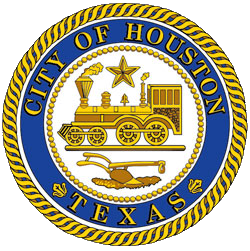HOUSTON – The Houston Health Department announced today the first presumptive positive case of coronavirus disease 2019 (COVID-19) in the city of Houston. The case is a male in the 60 to 70 age range with a history of international travel.
The man is experiencing mild symptoms and is self-quarantine at home. He is part of the same group of travelers to Egypt associated with recent cases announced in Fort Bend County and Harris County. There is no evidence of community spread.
CDC is currently requesting COVID-19 specimens that test positive be sent to the CDC lab for further confirmation, but local testing is considered actionable.
The Houston Health Department laboratory this week began COVID-19 testing specimens collected by area medical providers from patients meeting COVID-19 testing criteria set by the Centers for Disease Control and Prevention (CDC).
“All the cases in the Houston area have international travel in common and we’ve been actively monitoring these individuals since they were identified as being at-risk,” Houston Mayor Sylvester Turner said. “I encourage Houstonians to limit international travel for the time being and heed the advice of public health officials about healthy hygiene habits. If you are feeling sick, stay at home. But do not be paralyzed by fear.”
The health department has launched an investigation to identify any potential contacts exposed to the virus. The department will provide close contacts guidance about the virus and monitor them for the development of symptoms.
“The patient knew to monitor for symptoms and quickly sought medical care when he started feeling ill” said Dr. David Persse, local health authority for the Houston Health Department. “His quick action and the response of the public health system signifies that the potential for public exposure in Houston is minimal.”
People who recently returned to the United States from a COVID-19 outbreak area need to monitor for fever, cough and difficulty breathing for at least 14 days and seek medical care right away if they develop symptoms. Before going to a doctor’s office or emergency room, symptomatic people with a travel history to a COVID-19 outbreak area must call ahead to tell the healthcare professionals about their recent travel and symptoms.
If a person has not been around anyone with COVID-19 or has not visited an ongoing COVID-19 outbreak area, they are not at risk.
Human coronaviruses most commonly spread from an infected person to others through:
- Respiratory droplets released into the air by coughing and sneezing;
- Close personal contact, such as touching or shaking hands;
- Touching an object or surface with the virus on it, then touching your mouth, nose, or eyes before washing your hands; and
While COVID-19 is a new respiratory virus, daily precautions recommended to prevent respiratory illnesses are the same:
- Wash your hands often with soap and water for at least 20 seconds. If soap and water are not available, use an alcohol-based hand sanitizer.
- Avoid touching your eyes, nose, and mouth with unwashed hands.
- Avoid close contact with people who are sick.
- Stay home when you are sick.
- Cover your cough or sneeze with a tissue, then throw the tissue in the trash. If you do not have a tissue, use the elbow of your sleeve.
- Clean and disinfect frequently touched objects and surfaces.
Privacy protection laws only permit the release of limited patient information. The health department is unable to release any additional patient information.
